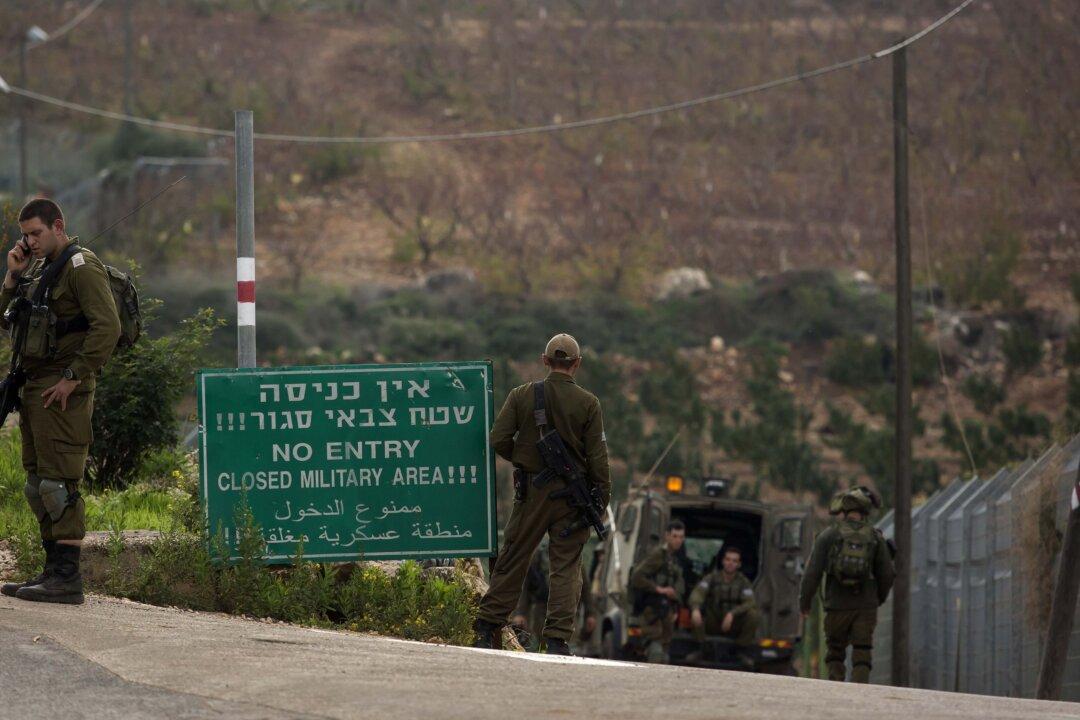JERUSALEM—Two rockets were launched into Israel from Lebanon overnight on Tuesday, setting off sirens but causing no damage or injuries, and the Israeli military said it had responded with artillery fire.
Israeli Defence Minister Benny Gantz suggested the incident could be linked to long-running governance problems rocking Lebanon and the influence of the Iran-backed terrorist group Hezbollah.





